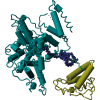US research has found that during the height of the COVID-19 pandemic, Google search autocompletes returned different results in Spanish and English.

In many cases, the suggested Spanish search terms were more fear- and stress-inducing than the English equivalent.
The researchers found that typing “coronavirus is” into Google yielded search predictions including “contagious,” “man made,” and “airborne,” while in Spanish, “coronavirus es” prompted “mortal,” “falso” (fake) and “peligroso” (dangerous).
“The health consequences of this data are profound,” said Pamela Valera from Rutgers School of Public Health.
Every day, billions of internet searches are powered by Google, and autocomplete predictions help deliver results faster by suggesting queries. Language, location, trending interest and past searches influence what is displayed, according to the company.
But predictive algorithms carry inherent bias, which can impact public health outcomes and behaviours, the researchers said.
Image credit | Shutterstock




